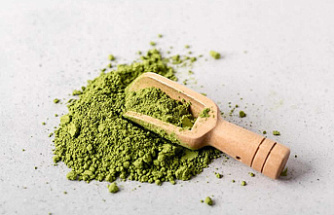Retinol, a derivative of vitamin A, has long been heralded as a skincare powerhouse, known for its ability to reduce fine lines, combat acne, and enhance skin turnover. However, while its benefits are well-documented, retinol use is not without its pitfalls. This has led many to explore plant-based alternatives that offer similar benefits with fewer side effects. Let's delve into the good, the bad, and the natural substitutes for retinol in skincare with https://akttherapy.com/blogs/news/retinol-the-good-the-bad-and-the-plant-based-alternatives blog.
Retinol's Skin Benefits
Retinol's popularity in skincare regimens is well-earned due to its numerous benefits:
- Anti-Aging Properties: Retinol is renowned for its ability to diminish the appearance of fine lines and wrinkles by boosting collagen production and accelerating cell renewal.
- Acne Control: It helps unclog pores, reduce acne outbreaks, and minimize acne scars, making it a go-to solution for clearer skin.
- Skin Tone and Texture Improvement: Regular use of retinol can lead to more even skin tone and smoother texture, as it sloughs off dead skin cells and promotes new cell growth.
The remarkable benefits of retinol have cemented its status in the world of skincare, addressing a wide array of concerns from aging to acne. Its multifaceted approach not only improves the skin’s appearance but also enhances its overall health by encouraging cellular regeneration and improving the skin's resilience over time. However, while the advantages are compelling, it's important for users to approach retinol use with mindfulness, considering its potential for irritation and ensuring it's appropriately integrated into their skincare routine to maximize its benefits while minimizing any adverse effects.
Potential Side Effects of Retinol
As mentioned above, despite its advantages, retinol can sometimes lead to undesirable side effects, particularly for those with sensitive skin:
- Irritation: Common reactions include redness, dryness, and peeling, especially during the initial weeks of use.
- Sensitivity to Sunlight: Retinol can make the skin more susceptible to UV radiation, necessitating the use of high SPF sunscreens.
- Not Suitable for All: Pregnant women are advised against using retinol due to potential risks to the fetus.
Adopting a cautious approach, such as starting with lower concentrations, gradually increasing usage frequency, and always incorporating a high SPF sunscreen during the day, can help mitigate some of these risks. Moreover, consulting with a dermatologist can provide personalized advice and alternatives, ensuring that everyone can achieve their skincare goals safely and effectively.
Alternatives: Nature's Answer to Retinol
For those seeking gentler alternatives, nature offers several plant-based compounds that mimic retinol's effects without harsh side effects:
- Bakuchiol: Extracted from the Babchi plant, bakuchiol has been shown to offer anti-aging benefits similar to retinol, without irritating the skin.
- Rosehip Oil: Rich in vitamin A, rosehip oil is a natural retinoid that helps improve skin texture and pigmentation.
- Carrot Seed Oil: High in beta-carotene, a precursor to vitamin A, carrot seed oil offers antioxidant protection and promotes skin renewal.
Switching to or incorporating plant-based retinol alternatives into your skincare routine can be a game-changer, especially for those with sensitive skin or for individuals looking for cruelty-free and vegan options. These natural alternatives can be found in serums, creams, and oils, allowing for easy integration into your existing regimen.
AKT.Therapy Solution
The AKT.Therapy Solution harnesses the potent effects of retinol, making it a powerful ally against acne and its related concerns. By promoting accelerated cell turnover, retinol ensures that dead skin cells are efficiently shed from the surface, preventing them from clogging pores and leading to breakouts. This increased cellular renewal not only helps in clearing acne but also in reducing the production of oil, a key factor in the development of acne. Furthermore, the effect of retinol on skin texture is noteworthy. With continuous use, individuals can notice a significant improvement in the smoothness of their skin, alongside a reduction in the visibility of acne scars. This is due to retinol's ability to speed up the epidermal turnover, which in turn promotes the emergence of new, healthy skin cells while fading scars and marks left by acne.
Additionally, retinol's ability to diminish skin discoloration and promote an even skin tone is another transformative benefit. By inhibiting the transfer of melanin to the epidermis and regulating melanocyte function, retinol effectively reduces pigmentation issues by up to 60%. This leads to a more uniform distribution of melanin, which is crucial for achieving a clear, even-toned complexion free from dark spots and hyperpigmentation.
Through the strategic application of retinol-based products, the AKT.Therapy Solution offers an approach to tackling acne, oiliness, scarring, and discoloration, revealing a smoother, clearer, and more radiant complexion.
Conclusion
While retinol remains a gold standard in skincare for combating various skin concerns, it's not the only option. Plant-based alternatives like bakuchiol, rosehip oil, and carrot seed oil provide promising benefits with a lower risk of side effects, making them suitable for a wider audience. Whether you stick with traditional retinol or opt for a gentler, natural substitute, the key is to choose a product that aligns with your skin's needs and your lifestyle choices.
Date Of Update: 19 April 2024, 08:38











